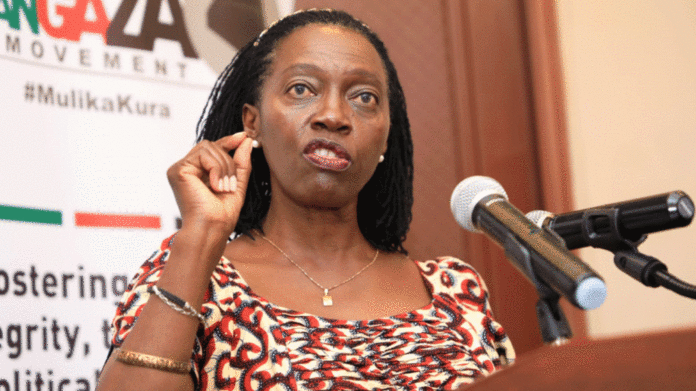By Sheila Mukabane, DevReporter, Nairobi County

Key Highlights
- Historically, Kenya’s patriarchal culture has relegated women to domestic roles, providing few opportunities for leadership.
- In recent decades, Kenyan women have begun to challenge these norms, asserting their influence in prominent leadership positions across various fields.
- Despite these advancements, women continue to face challenges such as gender-based violence and cultural biases.
Kenya is undergoing a transformative shift as women break through historical and cultural barriers that have traditionally limited their leadership roles.
This change is reshaping the nation’s political, social, and economic landscapes, serving as an inspiration for future generations.
Historically, Kenya’s patriarchal culture has relegated women to domestic roles, providing few opportunities for leadership.
However, in recent decades, Kenyan women have begun to challenge these norms, asserting their influence in prominent leadership positions across various fields.
The journey of Kenyan women has been marked by significant obstacles, including gender discrimination and the struggle to balance societal expectations with professional ambitions.
Notable Female Leaders
Notable female leaders in politics include Martha Karua, often referred to as the “Iron Lady” for her unwavering support for human rights, and the late Wangari Maathai, the first African woman to win the Nobel Peace Prize.
The dedication of these women has paved the way for more women to enter politics. The 2010 Kenyan Constitution’s two-thirds gender rule, which mandates gender balance in elected and appointed bodies, has further facilitated the advancement of women in leadership roles.
In the business sector, figures like Rebecca Wanjiku, founder of Fireside Company, have made their mark. Starting her career as a journalist, she transitioned into the tech industry, where Charity Wanjiku of Strauss Energy has also made significant contributions.
Flora Mutahi, the Chief Executive Officer of Melvins Tea, has shattered glass ceilings while championing gender equality and economic empowerment.

Challenges Persist
Kenya is undergoing a transformative shift as women break through historical and cultural barriers that have traditionally limited their leadership roles.
This change is reshaping the nation’s political, social, and economic landscapes, serving as an inspiration for future generations.
Historically, Kenya’s patriarchal culture has relegated women to domestic roles, providing few opportunities for leadership.
However, in recent decades, Kenyan women have begun to challenge these norms, asserting their influence in prominent leadership positions across various fields.
The journey of Kenyan women has been marked by significant obstacles, including gender discrimination and the struggle to balance societal expectations with professional ambitions.
Notable Female Leaders
Notable female leaders in politics include Martha Karua, often referred to as the “Iron Lady” for her unwavering support for human rights, and the late Wangari Maathai, the first African woman to win the Nobel Peace Prize.
The dedication of these women has paved the way for more women to enter politics. The 2010 Kenyan Constitution’s two-thirds gender rule, which mandates gender balance in elected and appointed bodies, has further facilitated the advancement of women in leadership roles.
In the business sector, figures like Rebecca Wanjiku, founder of Fireside Company, have made their mark. Starting her career as a journalist, she transitioned into the tech industry, where Charity Wanjiku of Strauss Energy has also made significant contributions.
Flora Mutahi, the Chief Executive Officer of Melvins Tea, has shattered glass ceilings while championing gender equality and economic empowerment.







🙌🙌
Thank you for reading.